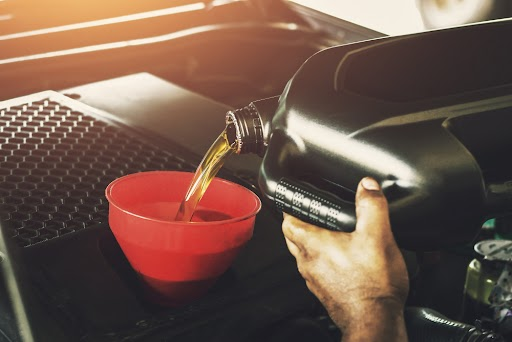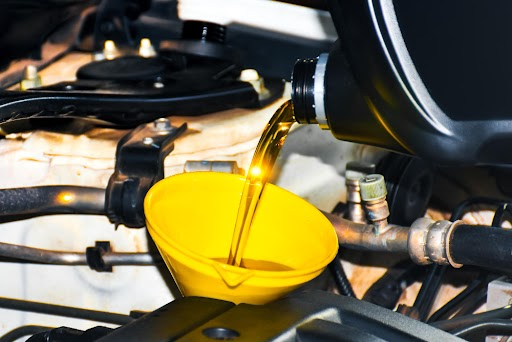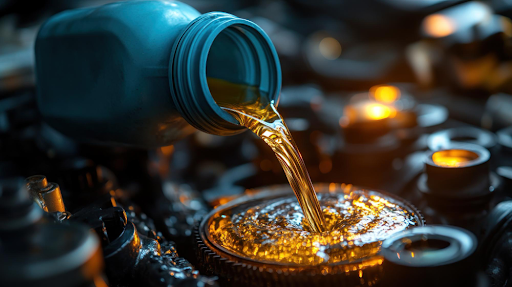Turbochargers are the unsung heroes in modern commercial diesel engines. They increase power, improve fuel efficiency, and reduce emissions. But here’s the catch: turbochargers place a heavy demand on the engine oil. They create extreme conditions in the engine that most oils simply can’t handle. That’s where diesel engine oil comes in – it’s built to endure the heat, pressure, and high-speed rotations that turbochargers create.
In this blog, we’re going to break down exactly how diesel engine oil handles the stress of turbochargers and why the right oil is crucial for engine performance and longevity.
Why Turbochargers Need Special Oil
Turbochargers are high-performance parts. They spin incredibly fast, often exceeding 100,000 RPM. As you can imagine, this creates a lot of friction, heat, and pressure inside the engine. Regular oils just aren’t up to the task. Here’s what makes turbochargers so demanding:
- High Operating Temperatures: Can exceed 400°C near the turbine
- Extreme Pressure Zones: Between the turbine shaft and bearing housing
- Carbon Deposit Risks: Oil can burn and leave residues
- Speed of Response: Oil must quickly reach turbo bearings after the engine starts
This is where the magic of high-quality diesel engine oil comes in. It resists these extreme conditions and continues to protect the engine, ensuring the turbo functions efficiently and lasts longer.
Thermal Stability Matters Every Time
Heat is one of the most significant stress points for turbocharged engines. Turbochargers create intense temperatures, especially during short bursts. But diesel engine oil is specifically formulated to handle this heat. Here’s how it helps:
- Maintains viscosity at high temperatures: Keeps oil flowing and protecting parts
- Reduces sludge and varnish: Prevents buildup on hot components
- Prevents oil coking: Doesn’t burn easily or leave sticky deposits
- Keeps bearings cool: Carries heat away from the turbo shaft
Good oil prevents overheating and ensures the turbo can spin freely, extending its lifespan and improving performance.
Contaminant Control is Critical
Diesel engines aren’t the cleanest machines. They produce soot, fuel traces, and other pollutants during combustion. These contaminants can end up in the engine oil, especially under heavy load. The right diesel engine oil helps manage these contaminants:
- Suspends soot: Keeps it from clumping and damaging the engine
- Neutralizes acids: Formed from combustion byproducts
- Cleans internal parts: Keeps oil channels free of contaminants
- Prevents abrasive wear: Caused by dirty oil
The turbocharger has tight clearances, and even small contaminants can lead to issues like bearing wear or reduced performance. Clean oil is essential.
Quick Circulation After Cold Start
When a vehicle starts after being idle, the turbo also starts turning, but the engine is still cold. Oil flow is slow, and if oil doesn’t reach turbo bearings fast, dry friction can occur. Here’s how diesel engine oils are made to handle cold starts:
- Flow quickly in cold temperatures: Ensures rapid lubrication
- Forms an instant protective film on moving parts: Prevents metal-to-metal contact
- Reaches narrow oil passages inside the turbo: Provides protection from the get-go
This early protection is vital to extend the life of the turbocharger and ensure smooth engine starts, especially in colder climates.
Shear Resistance Keeps Protection Strong
Turbocharger bearings experience high-speed loads. Oil films can get squeezed out under pressure if the oil isn’t strong enough. High-quality diesel engine oil is designed to:
- Maintain film thickness: Even under pressure
- Prevent metal wear: On the turbo shaft and housing
- Reduce foaming: That can lower protection
- Deliver consistent lubrication: At varying engine speeds
This ensures the oil stays in place and continues to protect critical components, even under extreme pressure.
Oxidation Control and Long Drain Intervals
Commercial vehicles are on the road for long hours, and frequent oil changes can cause unnecessary downtime. However, turbochargers generate heat, which accelerates oil breakdown. Oxidation-resistant oils help:
- Last longer between changes: Keep oil fresh and stable
- Reduce deposits: That block small oil lines
- Improve fuel efficiency: With smoother turbo operation
With fewer breakdowns and cleaner components, oil life is extended, reducing the need for frequent changes.
Protects Against Turbo Failure
Turbocharger damage is costly, and common causes include oil starvation, dirty oil, or degraded oil. The right diesel engine oil reduces this risk. It acts as:
- A cooling agent: Prevents overheating
- A lubricant: Ensures smooth rotation
- A cleaning agent: Keeps soot from settling
- A corrosion barrier: Protects turbo surfaces
By performing all of these roles, the oil protects the turbo system and ensures the engine runs smoothly, reducing the risk of expensive repairs.
What This Means for Commercial Vehicle Operators
Operators of trucks, buses, and heavy-duty vehicles know that downtime costs money. Choosing the right engine oil isn’t just about maintenance; it’s a business decision. The right oil:
- Reduces repairs: Related to turbocharger wear
- Lowers maintenance costs: Over long hauls
- Improves fuel economy: With smooth turbo performance
- Ensures reliable starts: In cold and hot conditions
- Keeps engines clean: And extends component life
A Quiet Performer in a High-Pressure World
While drivers and fleet owners may never see it, engine oil is doing its job behind the scenes. It fights heat, pressure, contamination, and friction—especially around the turbocharger. Diesel engine oil is the unsung hero in turbocharged engines. One of the most overlooked elements becomes the most critical when stress peaks. With the right formulation, it doesn’t just meet the demands; it outperforms under pressure.
That’s why brands like Tata Motors Genuine Oil focus on oils built specifically for commercial needs. Because when your vehicle carries weight, covers distance, and runs with turbo support, your oil needs to be more than just a lubricant. It must be your engine’s first line of defense.






